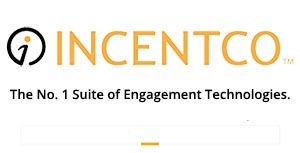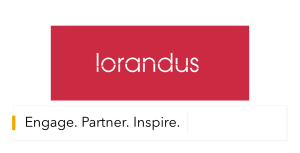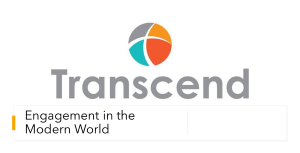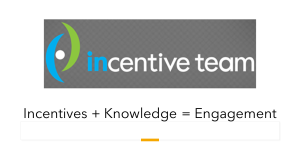Will the SEC Follow Investor Advisory Committee Recommendation to Beef Up Human Capital Disclosures?
Will the SEC Act Soon?
Conference Board Report: More ESG Filings, Fewer Pass
.png) The Security Exchange Commission’s Investor Advisory Committee (IAC) voted to approve, with two abstentions, a subcommittee recommendation regarding human capital management disclosure, as reported by Cydney Posner in the Cooley Pubco information service. These would include total expenditures on the workforce and turnover.
The Security Exchange Commission’s Investor Advisory Committee (IAC) voted to approve, with two abstentions, a subcommittee recommendation regarding human capital management disclosure, as reported by Cydney Posner in the Cooley Pubco information service. These would include total expenditures on the workforce and turnover.The jury remains out on whether the SEC is poised to act this fall, as many human capital insiders talked about last year at this time. Meanwhile, a report by the Conference Report conducted by Esgauge finds continued pressure during proxy season for ESG and anti-ESG measures.
This new disclosure would update the rule updated in 2020 under SEC Chair Jay Clayton that added a new requirement to disclose human capital on a “principles-based” approach focused on what the organization deems material. The rule limited the requirement to a “description of the registrant’s human capital resources, including the number of persons employed by the registrant, and any human capital measures or objectives that the registrant focuses on in managing the business (such as, depending on the nature of the registrant’s business and workforce, measures or objectives that address the development, attraction and retention of personnel).”
The SEC also requires public companies to disclose executive pay, how it is determined, and who is involved in the decisions.
Will the SEC Act Soon?
According to Posner, SEC Chair Gary Gensler told the IAC that the SEC staff has been “evaluating how disclosures under [the 2020 rule amendments] have been informing investors and possible recommendations for any enhancements, including considering the committee’s prior recommendations regarding the total dollars spent on the workforce as well as turnover.”
Commissioner Jaime Lizárraga reportedly said at the meeting that “[w]e can build on the 2020 foundation with quantitative metrics that will give investors the standardized, comparable information needed to properly evaluate companies’ market value.” Commissioner Hester Peirce, typically not a fan of prescriptive regulation, according to Posner, raised many revealing questions, in that they summarize the points generally raised by opponents to disclosures.
- “Are investors the only audience of the disclosures being recommended? If not, which specific disclosures are tied to financial materiality, the touchstone for investor-oriented disclosures? Will other constituencies benefit from these disclosures at the cost of investors?
- “Principles-based standards are designed to accommodate a varied issuer population. Would it even be possible for the commission to draft uniform, prescriptive human capital disclosure requirements that would elicit material information regardless of a company’s size, industry, location, and any other distinct human capital challenges?
- “Would the recommended disclosures risk giving investors false confidence in the accuracy, consistency, and comparability of human capital information?
- “Why do we need a new rule just three years after the commission’s adoption of human capital disclosures and before FASB (Financial Accounting Standards Board) issues its final disaggregation rule? (A proposal under review to provide more detail on human capital expenses in financial reporting, such as employee compensation.) If anything additional is needed, would guidance regarding the existing rule be better than a new rule?
- “Do we risk requiring disclosures that only larger companies could afford, perhaps because they already make similar disclosures? How should the commission scale these disclosures for smaller companies? What kind of human capital information is most costly for companies to track?
- “The draft recommendation expresses an interest in disclosures related to ‘gender, race/ethnicity, age, disability, and/or other [important] categories.’ Are there constitutional or other legal concerns with requiring such information to be disclosed publicly? How would this information be financially material?
- “How can the commission avoid drafting rules that would have the effect of micromanaging public companies’ human capital decisions, rather than simply eliciting disclosure?”
Conference Board Report: More ESG Filings, Fewer Pass .png)
So how much shareholder appetite is there for disclosures? According to the recent analysis of the most recent proxy season, “Executive compensation proposals increased significantly, but average support dropped. At the same time, average support for shareholder proposals dropped from 31% in 2022 to 23% in 2023, falling in every category: governance, executive compensation, environmental, social, and human capital management (HCM). The decline reflected major institutional investors taking a more case-by-case approach to shareholder proposals; companies having stepped up their ESG efforts and disclosures; and a decline in the quality of many shareholder proposals that are unrelated to the company’s business or overly prescriptive.”
The report was produced for the Conference Board by ESGAUGE, along with Russell Reynolds Associates, and the Rutgers Center for Corporate Law and Governance. Findings are based on a comprehensive review of shareholder proposals submitted at Russell 3000 companies between Jan. 1, 2023, and June 30, 2023, and a Chatham House rule discussion with leading governance professionals, meaning that any information shared was not for attribution.
The study finds that “average support for racial equity and/or civil rights audits dropped dramatically. Average support for racial equity and/or civil rights audits plummeted: 33% in 2022 to 14% in 2023. This may reflect that investors find the benefits of these proposals to be limited.”
At the same time, “shareholder proposals from anti-ESG groups increased but continued to perform poorly. Proposals from anti-ESG groups grew sharply: 54 proposals were filed in 2022 compared to 92 in 2023.But support plummeted: 9% in 2022 compared to 5% in 2023.”
The report’s authors say that “Companies should expect anti-ESG groups’ efforts to be even more carefully orchestrated and sophisticated next year. These groups are well-funded and often work together. In fact, speaking with one of them means speaking with all of them, as oral and written communications even from lower-level employees may become public and quoted verbatim,” says Umesh Chandra, Executive Director of ESGAUGE.
ESM Is Published by The EEA: Your Source for Effective Stakeholder Management, Engagement, and Reporting
Through education, media, business development, advisory services, and outreach, the Enterprise Engagement Alliance supports professionals, educators, organizations, asset managers, investors, and engagement solution providers seeking a competitive advantage by profiting from a strategic and systematic approach to stakeholder engagement across the enterprise. Click here for details on all EEA and ESM media services.
1. Professional Education on Stakeholder Management and Total Rewards
- Become part of the EEA as an individual, corporation, or solution provider to gain access to valuable learning, thought leadership, and marketing resources to master stakeholder management and reporting.
- The only education and certification program focusing on Stakeholder Engagement and Human Capital metrics and reporting, featuring nine members-only training videos that provide preparation for certification in Enterprise Engagement.
- EEA books: Paid EEA participants receive Enterprise Engagement for CEOs: The Little Blue Book for People-Centric Capitalists, a quick implementation guide for CEOs; Enterprise Engagement: The Roadmap 5th Edition implementation guide; a comprehensive textbook for practitioners, academics, and students, plus four books on theory and implementation from leaders in Stakeholder Management, Finance, Human Capital Management, and Culture.
2. Media
- ESM at EnterpriseEngagement.org, EEXAdvisors.com marketplace, ESM e–newsletters, and library.
- RRN at RewardsRecognitionNetwork.com; BrandMediaCoalition.com marketplace, RRN e-newsletters, and library.
- EEA YouTube Channel with over three dozen how-to and insight videos and growing with nearly 100 expert guests.
3. Fully Integrated Business Development for Engagement and Total Rewards
Strategic Business Development for Stakeholder Management and Total Rewards solution providers, including Integrated blog, social media, and e-newsletter campaigns managed by content marketing experts.
4. Advisory Services for Organizations
Stakeholder Management Business Plans; Human Capital Management, Metrics, and Corporate Sustainability Reporting for organizations, including ISO human capital certifications, and services for solution providers.
5. Outreach in the US and Around the World on Stakeholder Management and Total Rewards
The EEA promotes a strategic approach to people management and total rewards through its e-newsletters, web sites, and social media reaching 20,000 professionals a month and through other activities, such as:
- Association of National Advertisers Brand Engagement 360 Knowledge Center to educate brands and agencies.


















